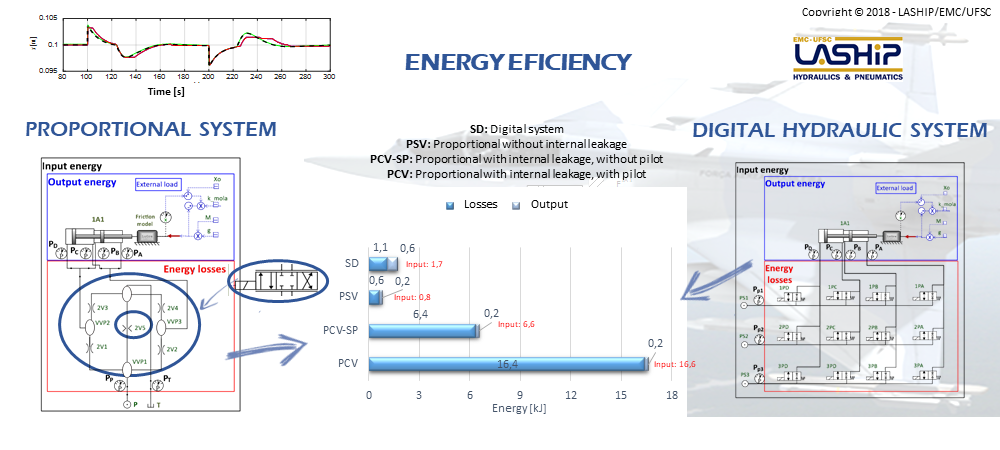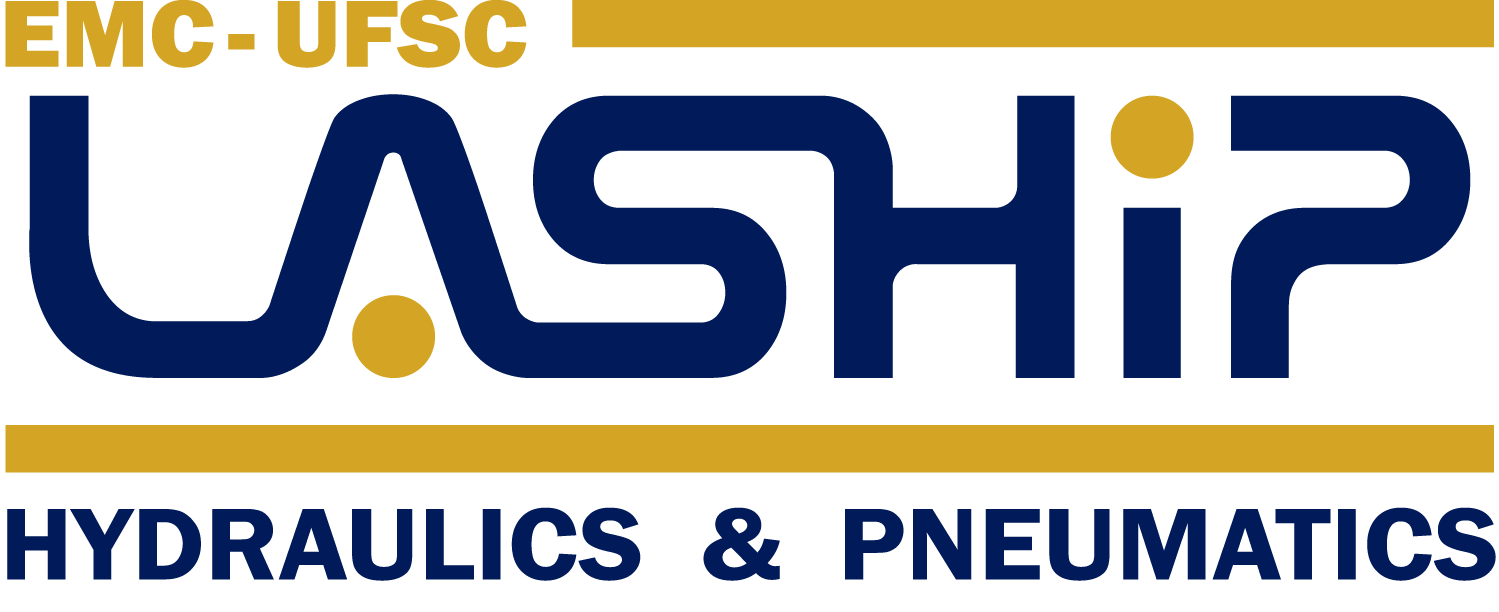Candidate: Diego Paúl Mise Cruz 
Program: UFSC / POSMEC
Date: June, 2018
Advisor: Victor Juliano De Negri, UFSC
Abstract: Hydraulics is a technology generally used in applications that require control of large loads and high power density. However, hydraulics systems are known to have low energy efficiency, especially when compared to electrical systems. As a consequence, a concept known as More Electric Aircraft-MEA propose that the design of new aircraft with the use of more electrical equipment. However, due to safety factors and reliability, control of the primary surfaces still prioritize the use of hydraulic actuators. According to the results of recent research, digital hydraulics is a technology that is proving to be an alternative for the reduction of energy dissipation in these systems. The main objective of the present work is the experimental analysis and modeling of a digital hydraulic system, with a special focus on energy efficiency. The digital hydraulic design used in this study was proposed by the researcher Henri C. Belan and is based on the replacement of the servo valve by a set of on/off valves associated with a multi-chamber actuator and three pressure lines. A digital system model was developed and implemented in the software Hopsan, and validated with experiments of the Digital Hydraulic Actuator Bench, existing in the Laboratory of Hydraulic and Pneumatic Systems of the Federal University of Santa Catarina. Also, two equivalent models were developed for the servo-valve actuation system, in order to compare the efficiency of these systems. One model considering the internal leakage and the other without considering these leaks. For the internal leakage model, the servo-valve was modeled using a full Wheatstone bridge with hydraulic resistances, which was validated based on experimental results. The results obtained show a considerable increase in the energy efficiency of the digital system, due to the absence of resistive control by orifice, reduction of internal and pilot leakage. The system with servo-valve has an efficiency of 1,2% and the digital system of 37,2%, with a reduction of input energy from 16,6 to 1,7kJ. A reduction of loss energy of 93%. As a complementary result, we also analyzed the influence of the size of the accumulators on the pressure variation in the supply lines of the digital system, and the influence on the performance of the system in the advance and return at the maximum speed of the actuator.
Reference: CRUZ, D. P. M. Análise de sistema hidráulico digital para aviões com foco em eficiência energética. 2018. 140 p. Dissertação de Mestrado. Universidade Federal de Santa Catarina



